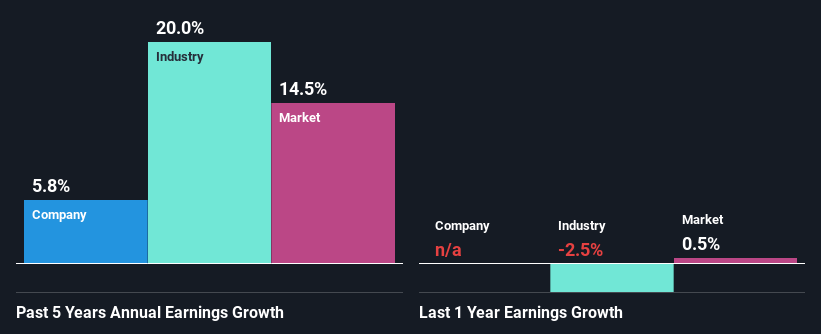Should Weakness in Kura Sushi USA, Inc.’s (NASDAQ:KRUS) Stock Be Seen As A Sign That Market Will Correct The Share Price Given Decent Financials?

It is hard to get excited after looking at Kura Sushi USA’s (NASDAQ:KRUS) recent performance, when its stock has declined 27% over the past three months. However, stock prices are usually driven by a company’s financials over the long term, which in this case look pretty respectable. In this article, we decided to focus on Kura Sushi USA’s ROE.
Return on equity or ROE is a key measure used to assess how efficiently a company’s management is utilizing the company’s capital. In other words, it is a profitability ratio which measures the rate of return on the capital provided by the company’s shareholders.
View our latest analysis for Kura Sushi USA
How Do You Calculate Return On Equity?
Return on equity can be calculated by using the formula:
Return on Equity = Net Profit (from continuing operations) ÷ Shareholders’ Equity
So, based on the above formula, the ROE for Kura Sushi USA is:
0.9% = US$1.5m ÷ US$165m (Based on the trailing twelve months to August 2023).
The ‘return’ is the amount earned after tax over the last twelve months. Another way to think of that is that for every $1 worth of equity, the company was able to earn $0.01 in profit.
What Is The Relationship Between ROE And Earnings Growth?
Thus far, we have learned that ROE measures how efficiently a company is generating its profits. Based on how much of its profits the company chooses to reinvest or “retain”, we are then able to evaluate a company’s future ability to generate profits. Assuming all else is equal, companies that have both a higher return on equity and higher profit retention are usually the ones that have a higher growth rate when compared to companies that don’t have the same features.
A Side By Side comparison of Kura Sushi USA’s Earnings Growth And 0.9% ROE
It is quite clear that Kura Sushi USA’s ROE is rather low. Even when compared to the industry average of 16%, the ROE figure is pretty disappointing. However, the moderate 5.8% net income growth seen by Kura Sushi USA over the past five years is definitely a positive. We reckon that there could be other factors at play here. For example, it is possible that the company’s management has made some good strategic decisions, or that the company has a low payout ratio.
Next, on comparing with the industry net income growth, we found that Kura Sushi USA’s reported growth was lower than the industry growth of 20% over the last few years, which is not something we like to see.
Earnings growth is a huge factor in stock valuation. The investor should try to establish if the expected growth or decline in earnings, whichever the case may be, is priced in. Doing so will help them establish if the stock’s future looks promising or ominous. Is KRUS fairly valued? This infographic on the company’s intrinsic value has everything you need to know.
Is Kura Sushi USA Making Efficient Use Of Its Profits?
Given that Kura Sushi USA doesn’t pay any dividend to its shareholders, we infer that the company has been reinvesting all of its profits to grow its business.
Summary
In total, it does look like Kura Sushi USA has some positive aspects to its business. Specifically, its fairly high earnings growth number, which no doubt was backed by the company’s high earnings retention. Still, the low ROE means that all that reinvestment is not reaping a lot of benefit to the investors. With that said, the latest industry analyst forecasts reveal that the company’s earnings are expected to accelerate. Are these analysts expectations based on the broad expectations for the industry, or on the company’s fundamentals? Click here to be taken to our analyst’s forecasts page for the company.
Have feedback on this article? Concerned about the content? Get in touch with us directly. Alternatively, email editorial-team (at) simplywallst.com.
This article by Simply Wall St is general in nature. We provide commentary based on historical data and analyst forecasts only using an unbiased methodology and our articles are not intended to be financial advice. It does not constitute a recommendation to buy or sell any stock, and does not take account of your objectives, or your financial situation. We aim to bring you long-term focused analysis driven by fundamental data. Note that our analysis may not factor in the latest price-sensitive company announcements or qualitative material. Simply Wall St has no position in any stocks mentioned.







